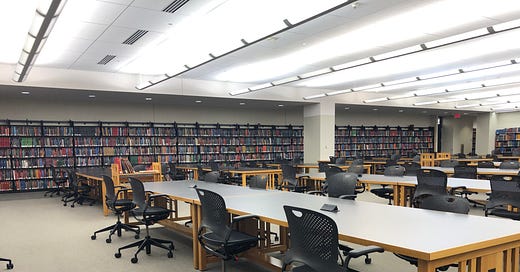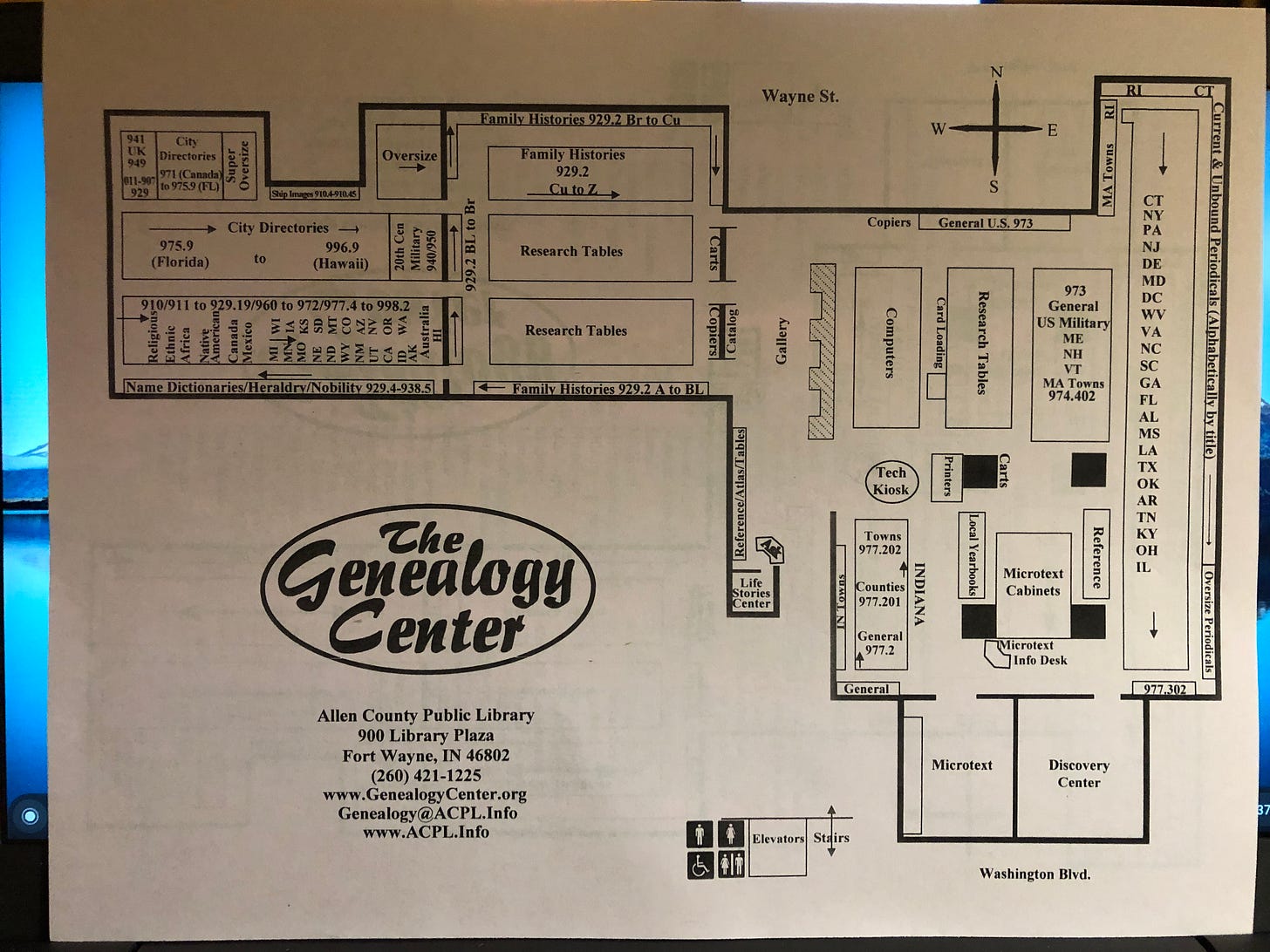How to prepare for a research road trip
What I learned while visiting the second-largest genealogy library in the U.S.
Last weekend, I took a road trip to the Allen County Public Library Genealogy Center in Fort Wayne, Indiana to explore its massive collection of family history materials. Located on the second floor of the library, the 42,000-square-foot Genealogy Center has more than ONE MILLION physical items. That is… overwhelming. But, thanks to some pre-planning, I was able to make the most of my trip.
I knew I would have less than a day at the Genealogy Center, so I explored the their online catalogs from home and made a list of the the items I wanted to review in person.
One of the biggest features they offer is the Periodical Source Index (PERSI), which is a subject index for their massive collection of genealogy and local history periodicals. You can also search their microfilm and microfiche collection. And, they offer quick search guides listed by state, subject, and country.
What I wish I had done
The one thing I didn’t think to do in advance was organize my research list of items by call number. Every item has a call number that corresponds to its location in the library. Since the library was so big, I got in a LOT of steps walking back and forth between the various sections. This map was incredibly helpful as I searched for items on the shelves.
My research list ended up being about eight pages long… so although I didn’t have enough time to review everything, I made excellent progress during my six hours at the library.
Some of my favorite finds:
Burlington City Directories [microfilm, Reel 2. 1908-1909, 1912, 1916-1917, 1920-1921] XX(1894025.1)
The directory lists residents both alphabetically by last name AND by street address
929.12 D65i Irish Emigrants in North America
I found emigration details of potential ancestors in my Delany line
Kirkwood Methodist Church, Kirkwood : Warren County, IL. v.3. 1888-1919 977.302 K63m
I found the date when my relatives became members of this church
Are you ready to take a research trip?
Here are some tips to help you get started:
Identify your research goals
Start with what you know and identify the gaps in your research
What do you want to learn?
Search the library catalogs for relevant items
Think geography. Which country, state, county would have this information?
Make an organized list
Create a document of all the items you want to review on-site. Include the title, author, date published, and most importantly, call number
Organize your list by similar items, usually by call number
What to pack in your bag
Your research list
A notebook and pencil (or laptop) to take notes
For digital copies: a flash drive; your phone, with a scanning app (I recommend Genius Scan)
For paper copies: cash, a folder to hold your papers
Track your progress in a research log
Record your findings - even if you don’t find anything (I write “no results” next to the item on my research list)
Scan/Copy what you find
When possible, include the title page, index, and page(s) with the results
Organize your notes and files
After your trip, be sure to organize your paper and digital files, so you can find them easily later!







